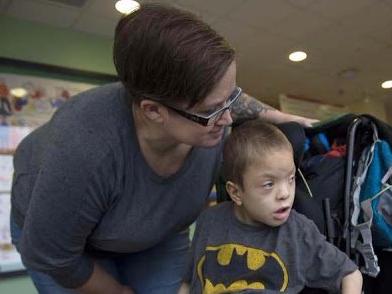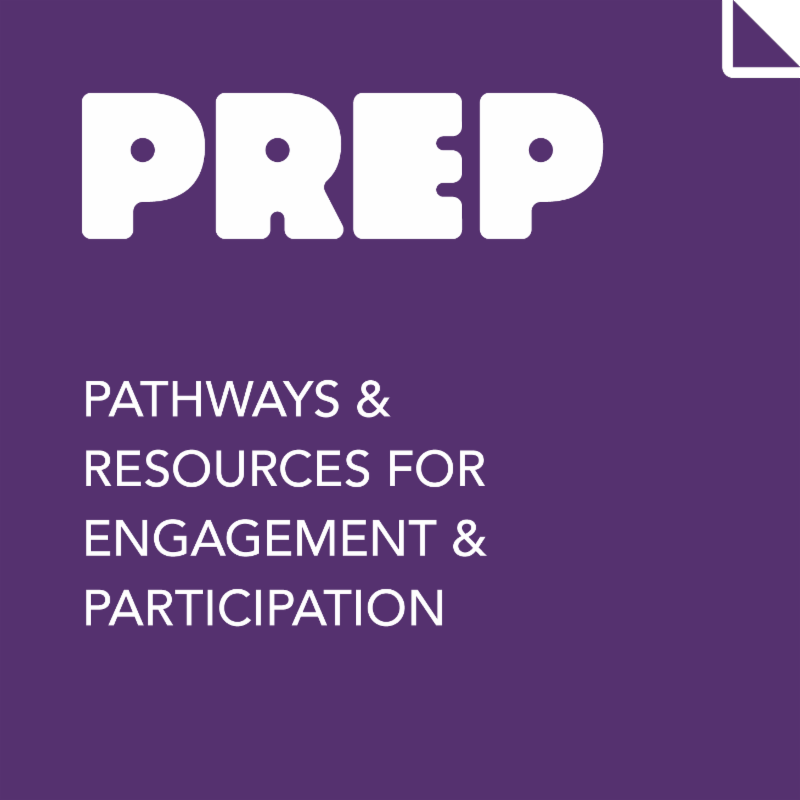Welcome to the February issue of
CanChild Today!
In this edition, we highlight an upcoming CP-NET webinar on how families, researchers and clinicians are implementing the "F-words" in Childhood Disability. We are also excited to share a new parent-led CP-NET webinar recording exploring how social media can help families find community and support online, as well as recent publications from the CanChild community.
Please feel free to share CanChild resources and this newsletter with family, friends and colleagues. They can subscribe to the
CanChild Today! Newsletter for free by registering
here
. Our past issues are archived on the CanChild website and can be accessed
here!
|
|
Upcoming CP-NET Webinar!
Bringing the 'F-Words' to Life: How are families and service providers using the 'F-words' in practice?
Date: Thursday, February 8 | 12:00pm - 1:00pm EST
Presented by:
Julie Brocklehurst,
Danijela Grahovac,
Peter Rosenbaum and
Rachel Teplicky
Moderated by:
Andrea Cross
The journey of the "F-words in Childhood Disability" first began in 2012, when CP-NET researchers Peter Rosenbaum and Jan Willem Gorter wrote a paper that integrated research-supported concepts of childhood disability into a series of "F-words" that they believed should be the focus of childhood disability:
FITNESS - FUNCTION - FUN - FAMILY - FRIENDS - FUTURE
Join
CP-NET
for a webinar highlighting F-word resources and strategies for implementing the concept at home and in clinical practice. All information will be presented in plain language by a panel that includes parent, clinician and researcher perspectives.
|
 |
|
New Resource!
Finding Community: Social Media for Families of Children with Disabilities
A CP-NET Webinar recorded on February 8, 2018
Presented by:
Rachel Martens, CanChild Family Engagement Facilitator
 |
Disability is a culture of identity to which parents aren't given a handbook, and families of children with disabilities often experience significant stress and feelings of isolation. Social media can be an excellent tool for connecting with other families to share lived experience, support, resources and mentorship, while the accessibility of social media can bridge the barriers of geographic distance and rare diagnoses. View now. |
|
 |
Featured Publication: More evidence for the PREP approach!
The effectiveness of the Pathways and Resources for Engagement and Participation (PREP) intervention: improving participation of adolescents with physical disabilities
 Participation in community-based activities is an important rehabilitation outcome for children and adolescents with disabilities, and has been identified as a research priority by both parents and health professionals.
A new study, The effectiveness of the Pathways and Resources for Engagement and Participation (PREP) intervention: improving participation of adolescents with physical disabilities finds a statistically significant improvement in participation in adolescents after taking part in a 12-week PREP intervention.
Occupational therapists worked with adolescents and caregivers to identify, minimize, or remove barriers to participation in three chosen participation goals or community activities. Activity performance was measured using the Canadian Occupational Performance Measure (COPM)
during
baseline, intervention, and
at
follow-up (20 weeks). A significant intervention effect
was seen for 74 of the 79 activities
, and adolescents maintained their level of performance in the follow-up period.
The study adds to growing evidence supporting PREP as an effective way to support participation in adolescents with physical disabilities.
The PREP Intervention Protocol is available for purchase in the CanChild Shop.
Also, watch for the all new PREP Online Learning Module, coming soon to the CanChild Shop!
|
 |
Recent Publications by CanChild Members
|
Family-professional collaboration, an important aspect of family-centred care, is a process in which families and professionals work together to identify goals and an intervention plan that address family concerns, needs and priorities. Research supports the value of family-professional collaboration; however, there is a knowledge gap in processes and strategies that promote collaboration. This case study describes the use of a 4-step practice model that incorporates specific strategies to facilitate family-professional collaboration. Two mothers of children with physical disabilities worked with two physical therapists to determine mutually agreed upon goals (step 1), develop an intervention plan to be implemented as part of daily family routines (step 2), implement and progress the implementation plan (step 3), and evaluate successes and challenges, and determine whether or not the goals were achieved (step 4). Findings suggest that the practice model strategies can be used by therapists to promote collaboration and involve parents in goal setting and the intervention process.
Authors:
An M, Palisano RJ, Dunst CJ, Chiarello LA, Yi CH, Gracely EJ.
Disabil Rehabil. 2016 Sep;38(18):1844-58. doi: 10.3109/09638288.2015.1107763. Epub 2015 Dec 17.
The International Classification of Functioning, Disability and Health- Children and Youth Version (ICF-CY) provides a holistic framework which recognizes a child's disability as a dynamic interaction between the health status of the child and the environment in which the child lives. The American Speech-Language-Hearing Association has adopted the framework to help guide practice and encourages its use in both clinical and research activities. The primary goal of this scoping review was to identify current methods used to evaluate speech-language outcomes for preschoolers with communication disorders within the framework of the ICF-CY, as well as which components of the ICF-CY they address. After identifying 214 relevant peer-reviewed publications, the authors found that most publications used measures to evaluate changes in outcomes for Activities (65%), followed by measures evaluating changes in Body Functions (20%), and finally measures evaluating changes at the level of Participation (15%). The authors advocate for the use of Participation-based outcome measures in future research in order to detect meaningful change in the lives of children and families.
Authors:
Cunningham BJ
,
Washington KN
,
Binns A
,
Rolfe K
,
Robertson B
,
Rosenbaum P
. J Speech Lang Hear Res.
2017 Feb 1;60(2):447-464. doi: 10.1044/2016_JSLHR-L-15-0329.
|
 |
Canadian Anti-Spam Legislation
You are a member of the CanChild Today electronic newsletter generated by CanChild at McMaster University. If you believe that you should not be a recipient, you may withdraw your consent to receive these messages at any time, in accordance with Canadian Anti-Spam Legislation (CASL) and subject to McMaster University policy, by contacting the sender of this message, or by clicking on the 'SafeUnsubscribe' link at the bottom of this newsletter.
|
|
|
|
|